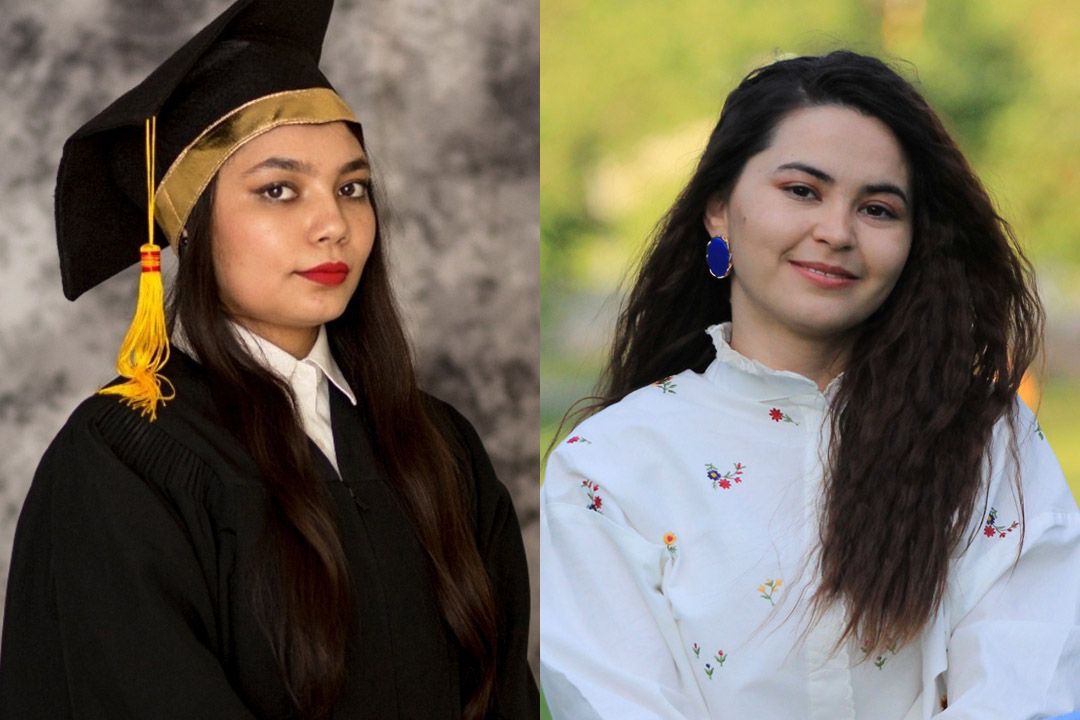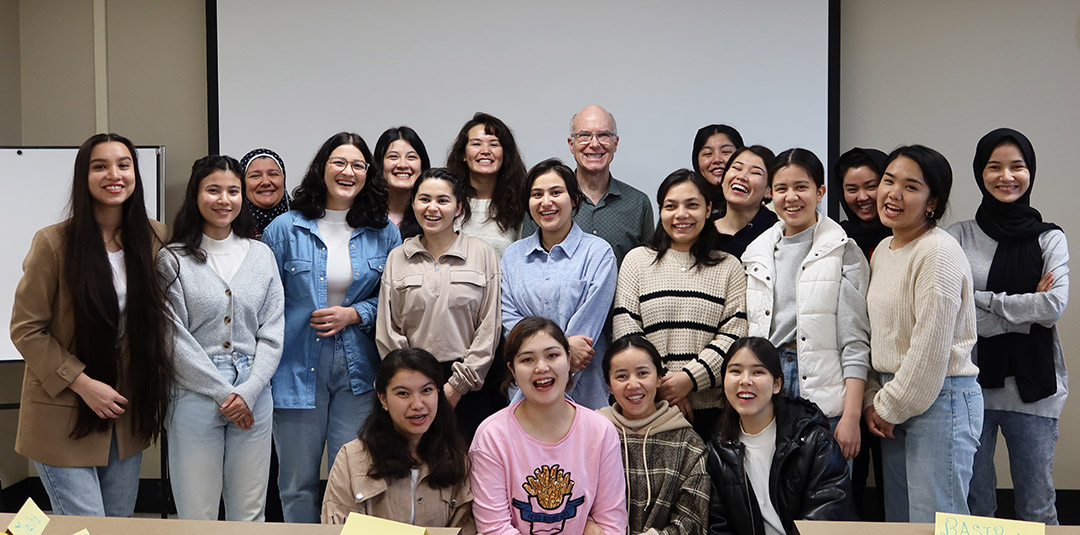
USask support program fosters community, academic skills with Afghan refugees
An academic support program at the University of Saskatchewan (USask) is helping Afghan refugees who are looking to further their education.
By Darla ReadSponsored by the 30 Birds Foundation, the English Language Enhancement and Academic Preparation (E-LEAP) course is a six-week program created by the USask Language Centre (USLC). E-LEAP supports prospective applicants to USask who require English proficiency assessments, intensive academic English training, and support in completing an application to USask.
Twenty-one-year-old Basira Burhani was one of the women 30 Birds helped to escape Afghanistan after the country fell to the Taliban. After an arduous journey to Pakistan where she lived for months, she arrived in Saskatoon.
“The impact of the Taliban affected us women and girls deeply, and many, like me, suffered profound personal losses—my father, just in his 40s, being among them,” noted Burhani, who, after successfully completing the E-LEAP course, is now enrolled in computer science in the College of Arts and Science. “Despite these challenges, our resilience remains unbroken. The support we received will forever hold a place in our memories.”
The 30 Birds Foundation is dedicated to safeguarding the future of a group of 450 Afghans, predominantly schoolgirls, who they evacuated from Taliban-controlled Afghanistan.
E-LEAP is unique because it does not assume all participants will need English for Academic Purposes for proficiency. The program recognizes that some students may have strong English but need some academic practice and assistance in getting to the next step: applying for an academic program.
“We are honoured to help Afghan women and girls reach their academic goals and be a part of the USask community. This is USask living out what it means to be the university the world needs,” said Dr. Airini, USask’s provost and vice-president academic.
“Drawing awareness to the supports that are required for specific groups like this one are a significant example of where USask can build its global impact to individuals who are new to Canada,” said Tanya Napper, director of USLC. “Saskatchewan continues to be one of the most open provinces for immigration and with almost 20,000 arrivals last year alone, there are many looking to settle and build a future and for some, that includes post-secondary education.”

Each E-LEAP class is three hours in length, with defined modules. The recent program focused on writing an academic paper, so the students learned about grammar, sentence structure, the format of a paper, and how to properly cite references. Napper notes these hours are intensive and involve aspects of listening, speaking, reading, and writing.
Despite the intensive work, Napper said this group of students has exemplified “outstanding energy and persistence.
“Many are working part-time jobs and caring for each other and themselves. They are very organized and have clear goals in mind, and they are highly participatory in class and are not shy to ask questions or send us emails.”
Sumaya Hosseini, another Afghan refugee who also lost her father, expressed gratitude for all she learned during the course.
“I learned how to write an academic paragraph and essay, how to take notes in academic ways to save more time during the class, and I learned how to cite research and much more that is beneficial for me.”
Hosseini plans to study nursing and become a nurse practitioner.
Napper said 30 Birds will be co-ordinating the next program offering, which will be this February and March. Due to request and demand, the course will be longer in length. Napper anticipates there will be another group of 20 students focused on the same approach and outcomes of intensive academic English, proficiency test assessments, and application completion.
For more information, contact learnenglish@usask.ca.
Together we will support and inspire students to succeed. We invite you to join by supporting current and future students' needs at USask.

